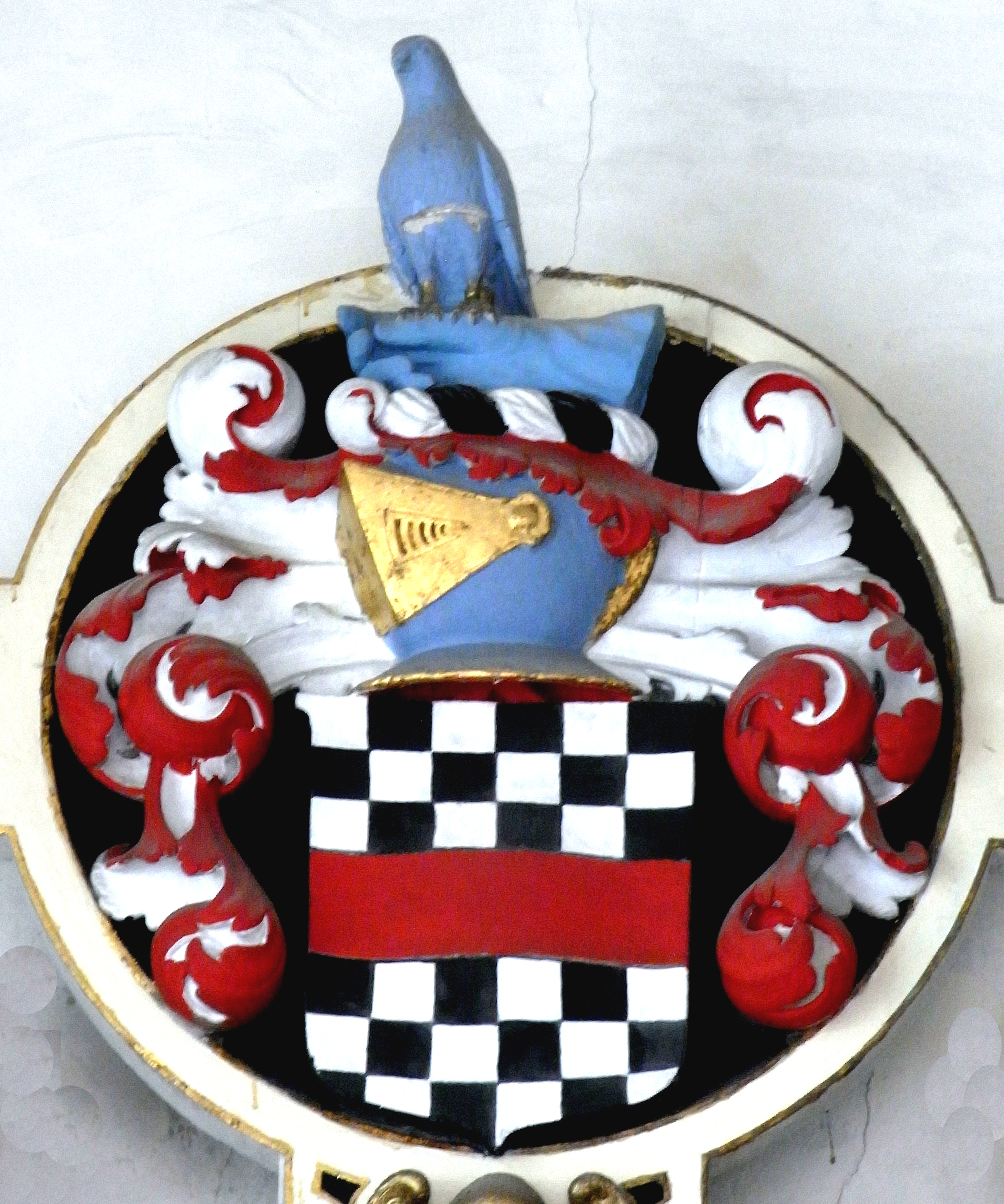Arthur Acland (died 1610) on:
[Wikipedia]
[Google]
[Amazon]

 Sir Arthur Acland (also recorded as Sir Arthure Akelane) (1573–1610) of AclandPer monumental inscription in Landkey church, transcribed at :File:AclandMonument LandkeyDevon.JPG in the parish of
Sir Arthur Acland (also recorded as Sir Arthure Akelane) (1573–1610) of AclandPer monumental inscription in Landkey church, transcribed at :File:AclandMonument LandkeyDevon.JPG in the parish of
 Acland married his step-first cousin Eleanor Mallet (1573–1645), a daughter and co-heiress of Robert Mallet of
Acland married his step-first cousin Eleanor Mallet (1573–1645), a daughter and co-heiress of Robert Mallet of

Landkey
Landkey ( kw, Lannke) is a small village in the county of Devon in the south-west of England with a population of 2274, falling to 1,734 at the 2011 census. It is situated from the nearest town of Barnstaple. The village is a major part of ...
, Devon, was a member of the Devonshire gentry, and was knighted in 1606.Vivian, p.4 Little is known of his life and career, but his monumental inscription survives above his impressive monument in Landkey Church. His son was Sir John Acland, 1st Baronet (c. 1591 – 1647). He was ancestor to the prominent, wealthy and long-enduring Acland family of Killerton
Killerton is an 18th-century house in Broadclyst, Exeter, Devon, England, which, with its hillside garden and estate, has been owned by the National Trust since 1944 and is open to the public. The National Trust displays the house as a comfortab ...
, which survives today in the direct male line.
Origins
Arthur Acland's grandfather was John Acland (died 1553), of Acland, described as "the first of the clandfamily to emerge from the shadows of history as a visible human being". His father was Hugh Acland (c. 1543 – 1622) of Acland,Sheriff of Devon
The High Sheriff of Devon is the Queen's representative for the County of Devon, a territory known as his/her bailiwick. Selected from three nominated people, they hold the office for one year. They have judicial, ceremonial and administrative f ...
in 1611, and he was the eldest of his four sons. His mother was Margaret Monke (died 1619), who was a daughter of Thomas Monke (),Vivian, p.569, pedigree of Monk of Potheridge, who came from an ancient Devonshire family and was great-grandfather of George Monck, 1st Duke of Albemarle (1608–1670). Thomas Monke's first wife and Margaret's mother was Frances Plantagenet, a daughter of Arthur Plantagenet, 1st Viscount Lisle
Arthur Plantagenet, 1st Viscount Lisle, KG (died 3 March 1542) was an illegitimate son of the English king Edward IV, half-brother-in-law of Henry VII, and an uncle of Henry VIII, at whose court he was a prominent figure and by whom he was appoi ...
(died 1542) an illegitimate son of King Edward IV.
Marriage and children
Woolleigh, Beaford
Woolleigh (anciently ''Woolley'', ''Wollegh'', etc.) is an historic estate in the parish of Beaford, Devon. The surviving mansion house known as Woolleigh Barton, situated 1 3/4 miles north-west of the parish church of Beaford, is a grade II* ...
. Her mother (or step-mother) was Elizabeth Rolle, who remarried to Sir John Acland (died 1620), Sir Arthur's uncle. Eleanor survived her husband and remarried to Sir Francis Vincent, 1st Baronet (c. 1568–1640) of Stoke d'Abernon, in Surrey.
By Eleanor, Acland had a son and heir, Sir John Acland, 1st Baronet (c. 1591 – 1647) who married his step-sister Elizabeth Vincent (died 1671) and was buried at Stoke D'Abernon. They also had two daughters: Elizabeth, who married her step-relative Anthony Vincent of Stoke D'Abernon; and Anna who died childless.
Death and succession
Acland died aged 37 on 26 December 1610, and was buried 10 January 1611 in Landkey Church, where there is a large monument with effigies of himself and his wife.Pevsner, Nikolaus & Cherry, Bridget, The Buildings of England: Devon, London, 2004, p.531 He left a widow and not only pre-deceased his wealthy and childless uncle Sir John Acland (died 1620), but also pre-deceased his own father, who died 12 years later in 1622. He thus never inherited the Acland paternal estates which passed in 1622 to his son Sir John Acland, 1st Baronet (c. 1591 – 1647), even though his three younger brothers were still living.Vivian, p.4. His three brothers all survived him and their father, in whose will they were named The first baronet thus inherited his father's new estate of Killerton, his grandfather's ancient estate of Acland with several others and also his great-uncle's new estate of Columb John,Acland, Anne, p.5 where he made his home, leaving Acland to become a residence for younger branches of the family.Monument
Acland's impressive monument, said to have been erected by his grieving father, survives in Landkey Church. It shows Sir Arthur lying prostrate, in full armour, propped up on his left elbow. In front and below him lies his wife Eleanor Mallet. Above are two round headed black tablets inscribed with gilt lettering.Notes
References
Sources
*Acland, Anne. ''A Devon Family: The Story of the Aclands''. London and Chichester: Phillimore, 1981 *Vivian, Lt.Col. J.L., (Ed.) ''The Visitations of the County of Devon: Comprising the Heralds' Visitations of 1531, 1564 & 1620'', Exeter, 1895 {{DEFAULTSORT:Acland, Arthur 1573 births 1610 deathsArthur
Arthur is a common male given name of Brythonic origin. Its popularity derives from it being the name of the legendary hero King Arthur. The etymology is disputed. It may derive from the Celtic ''Artos'' meaning “Bear”. Another theory, more wi ...
People from North Devon (district)
Knights Bachelor